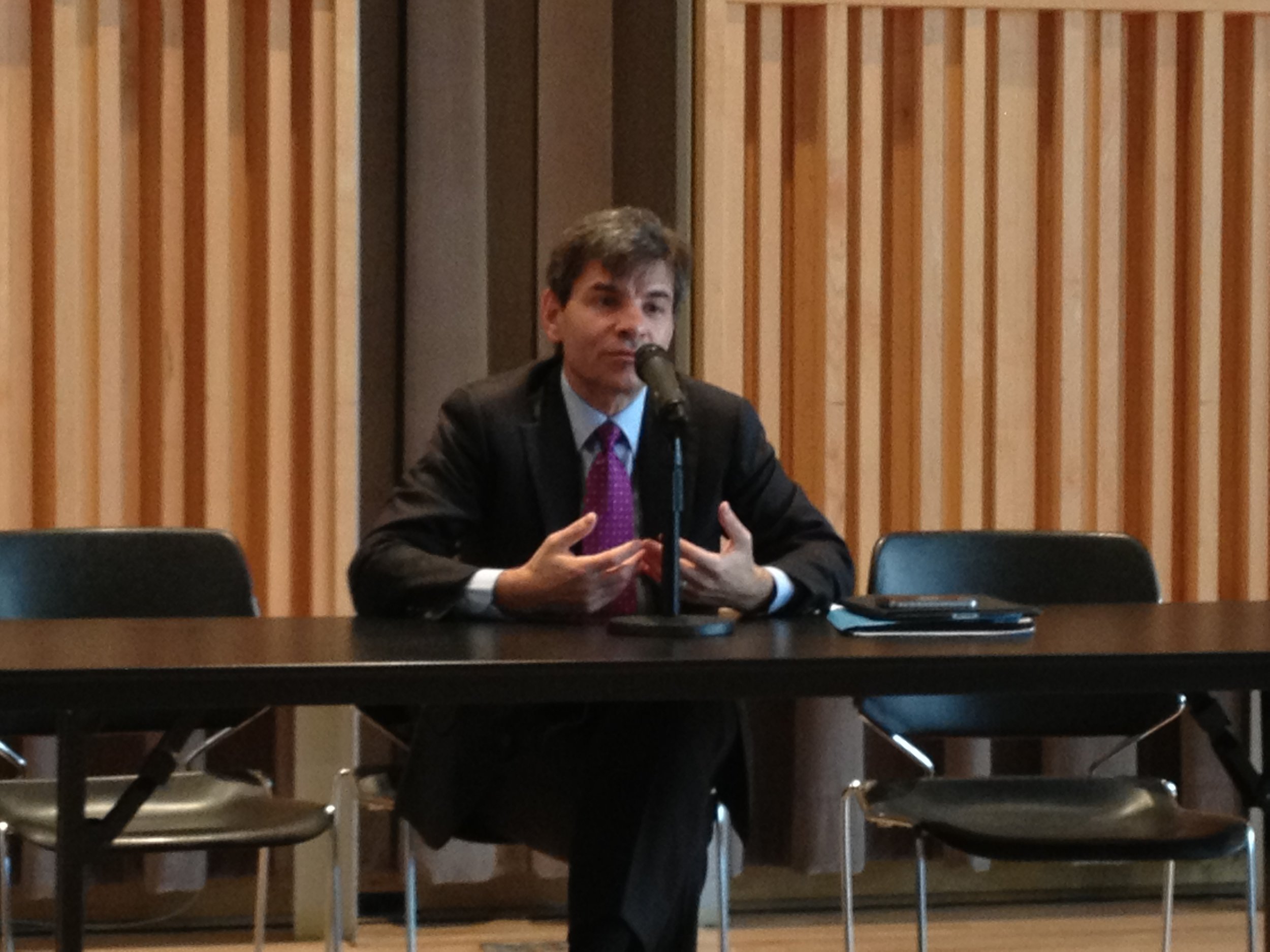Political Minutes: George Stephanopoulos
 On Tuesday afternoon, TV journalist, political analyst, and best-selling author - George Stephanopoulos - participated in a question and answer session at Columbia University.
In many respects, the event was, for Stephanopoulos, a return to the roots of his career. Stephanopoulos (CC’82), who was salutatorian, a Truman Scholar, and later a Rhodes Scholar, began his career in journalism as a sportscaster for the University’s radio station – WKCR.
On Tuesday afternoon, TV journalist, political analyst, and best-selling author - George Stephanopoulos - participated in a question and answer session at Columbia University.
In many respects, the event was, for Stephanopoulos, a return to the roots of his career. Stephanopoulos (CC’82), who was salutatorian, a Truman Scholar, and later a Rhodes Scholar, began his career in journalism as a sportscaster for the University’s radio station – WKCR.
When the event started, Stephanopoulos took a brief moment to thank old professors and remember classmates. In the Q&A session, members of Columbia University’s student body fielded questions and the event was moderate by the Columbia International Relations Council and Association (CIRCA). After the first few questions were asked, it became clear that the two topics on everybody’s mind were the 2012 Presidential election and the increasing polarization of the country.
Attempting to make sense of what one student called a “haphazard and confusing” Republican Primary, Stephanopoulos made it clear that the likelihood of another candidate outside the Gingrich-Santorum-Romney trifecta gaining momentum in the primary is “far-fetched.” When asked about Ron Paul, Stephanopoulos thoughtfully answered that he did not believe Paul was unconditionally seeking the presidency, but was rather trying to increase his influence within the Republican Party to provide a platform for his son, Rand Paul.
Stephanopoulos additionally predicted that the GOP’s weakness in this election, and perhaps in subsequent years, will be its weakening influence over growing ethnic demographics.
After reflecting on the current Republican primary, Stephanopoulos went on to address the current degree of polarization plaguing Washington. Stephanopoulos declared, “It’s the worst I’ve ever seen.”
Interestingly, he attributed the state in Washington to what was going on in the rest of the country.
“Of course, the political system reflects a polarized public,” said Stephanopoulos.
This polarized public, according to Stephanopoulos, could be attributed to two factors. He spoke of what he called “the cocooning effect” in which the Internet and cable news television encourages people to seek out media outlets who will reinforce the political beliefs they already hold.
Yet while the Internet may be contributing to polarization, it is also encourages an “old style of campaigning” that brings the candidate closer to the public and increases political and civic engagement.
Stephanopoulos went on to talk about how polarization is affecting one of the more untouchable branches of government – the Supreme Court. Stephanopoulos speculated that Justice Ginsberg would retire should President Obama be reelected. He also reasoned that the current divide on the Court already has been set.
“The split will be in place for a while,” said Stephanopoulos.
Midway through the session the talk shifted from domestic to foreign affairs. One student asked how the tension between Israel and Iran would affect the United States’ relations with both countries.
Stephanopoulos first noted that President Obama’s position, which is shared by Mitt Romney, is essentially, “all options are on the table.” He then went on to talk about what he called “an intelligence war” between the United States and Israel in which both countries produce conflicting reports on Iran’s nuclear capability.
“We cannot really live with an Iranian bomb,” said Stephanopoulos. The United States should be not be worried about an attack from Iran but rather: the consequences of an Iranian offensive against Israel or an Israeli offensive against Iran.
In an ominous prediction of Middle East affairs that seemed to startle the audience, Stephanopoulos said, “There is better than a 50 percent chance that Israel will launch a strike against Iran in the next year.”
After this thought, the afternoon concluded with enthusiastic applause from the audience and many thanks from Stephanopoulos, who promised to soon return to his alma mater.
